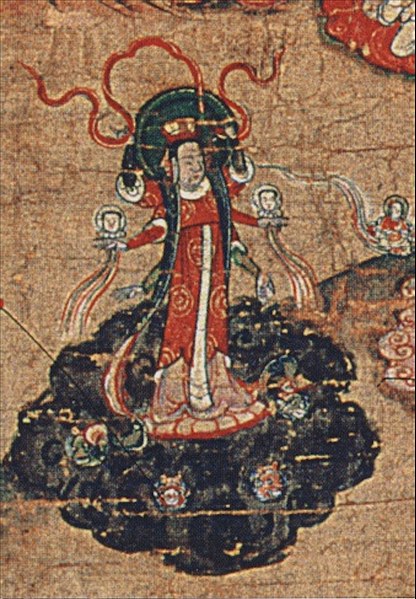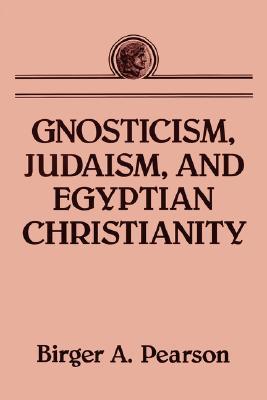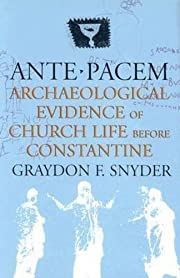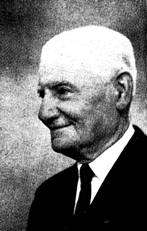118
Conclusion
The final conclusion of the investigation into the relationship between the Pauline letters and their position in relation to the Acts of the Apostles will be provided by the decision on the letter to the Galatians.
It is certain that the Pastoral letters are the last products of this epistolary literature. The first letter to the Thessalonians presupposes the Acts of the Apostles and, apart from the Corinthian and Roman letters, also presupposes the Galatian letter with its current introduction.
The author of the letter to the Philippians, a letter that concludes the series to which it belongs, used the second letter to the Corinthians, the first and second sections of the letter to the Romans, and the first letter to the Thessalonians.
The letters to the Ephesians and Colossians presuppose familiarity with the first letter to the Corinthians and with the letter to the Galatians.
When the third section of the letter to the Romans was written, the Acts of the Apostles did not yet exist, for the author of the latter has (in the speech of Paul to the elders of the church of Ephesus in Acts 20:35) inserted the catchphrase of that section regarding the reception of the weak in a completely foreign context and on a highly unmotivated basis *)—at least in its current form, the Acts of the Apostles did not yet exist even then, when the concluding section of the letter to the Romans was written, for the one who gave the Acts of the Apostles its final redaction imitated, in his reference to the words of the Lord, which he added to his unmotivated exhortation to receive the weak, the example of Christ for the reception of the believers among themselves (Romans 15:7).
The first section of the letter to the Romans is the oldest product within the circle of this literature, for it was known to the author of the first letter to the Corinthians, which immediately follows it in time and reproduces the catchphrases of his dialectic *) concerning sin as the sting of death and the law as the power of sin —if even the third section of the letter to the Romans precedes the Acts of the Apostles, then even more so does the first letter to the Corinthians, which was before the author of that section.
It can even be demonstrated that the Apollos of the Acts of the Apostles owes the essence of his character, his attitude, and his successes to the first letter to the Corinthians: he was originally (Acts 18:24) an Alexandrian Jew, hence speculatively educated,**) and thus represents in his beginnings human wisdom, whose contrast to the divine the author of the first letter to the Corinthians deals with in the section in which he sets Paul and Apollos against each other—he goes from Ephesus to Achaia and Corinth, thus coming to the stage he occupies in that letter—by his struggle with the Jews, he performs a great service for the believers here, thus doing again what the Apollos of the first letter to the Corinthians does, he waters the planting that Paul has laid out***): only the author of the Acts of the Apostles has, in his own way, subjected the Alexandrian-educated dialectician both to Paul and to Christian Judaism, by giving him through Aquila and Priscilla, that couple friendly to the Gentile apostle, the Christian completion (Acts 18:2, 3, 26)—finally, that unmotivated and highly unfortunate appeal of the apostle to the selflessness he has shown in providing for his own livelihood *) was formed according to the presuppositions of the first letter to the Corinthians.
*) Acts 20:35 πάντα ὑπέδειξα ὑμῖν ὅτι οὕτω κοπιῶντας δεῖ ἀντιλαμβάνεσθαι τῶν ἀσθενούντων.
Rom 14:1 τὸν δὲ ἀσθενοῦντα τῇ πίστει προσλαμβάνεσθε.
*) 1 Cor 15:56. Rom 7, 8-13
**) The writer of Acts even marks him out. emphatically (ibid.) as a scientifically educated man ανηρ λογιος.
***) Acts 18:27-28. 1 Cor 3:6
*) In that speech to the ecclesiastical leaders of Ephesus (Acts 20:33-34).
120
I must admit that I am not yet able to make a definitive decision regarding the relationship between the Second Corinthians and the Acts of the Apostles. However, one thing is certain: the Second Corinthians presupposes a detailed treatment of Paul’s life. Its author firmly assumes that the life of the Apostle was distinguished by miracles and miraculous experiences. He already lives with the idea that suffering was the essential attribute of the Gentile Apostle but was always resolved into victory through divine miraculous help (Ch. 6:5-10). Even the enumeration of his sufferings, such as being beaten by the Jews and then whipped (Ch. 11:24-25), corresponds to the order in which the Gentile messenger,**) after being persecuted and mistreated by the Jews in Antioch, Iconium, and Lystra, is whipped in Philippi in the Acts of the Apostles. The fact that the alms collected in Antioch and sent by Paul of the Acts of the Apostles and his fellow traveler Barnabas to the brothers in Judea is referred to as a service also agrees with the usage of the Second Corinthians. One of the two, the author of this letter or the author of the Acts of the Apostles, must have had the other’s work in mind, but who? The way in which the latter (Acts of the Apostles 24:17) describes the gift that Paul brings to Jerusalem as one that he sacrifices to his people as his personal gift seems to me to be compelling evidence that the author of the Second Corinthians had an earlier treatment of the Acts of the Apostles in mind, and that the one who gave the latter work its final redaction borrowed its keywords from that letter.
**) Acts 11:29εἰς διακονίαν. Compare 2 Cor 8:4; 9:12
121
Therefore, there must be a kind of pivot point where the Galatians letter stands: the letters that precede it do not yet know the present Acts of the Apostles, and among those that follow, the first Thessalonians and Philippians letters assume familiarity with it, not to mention the pastoral letters.
So what about the letter itself?
It knows the present Acts of the Apostles*). When Paul is brought into conflict with it, whether he should circumcise Timothy, who had a Jewish mother but a Greek father, but circumcised him because of the Jews among whom he lived, the conflict is just as naturally shaped as resolved. In contrast, the corresponding conflict in the Galatians letter, as I have shown, is already flawed and misshapen in its conception, and the author of this letter neither understood nor dared to give it a real solution, a real conclusion. Although he would like to contrast with the flexibility that Paul shows in the Acts of the Apostles, he would like to bring it about that the apostle freed the Greek Titus from the claims of Judaism, and yet he is so dependent on his original, the Acts of the Apostles, that he borrows a turn of phrase*), which would lead to the apostle submitting to the consideration of the Jews. Only the embarrassment into which this dependence on his original has entangled him is so great that he leaves the sentence that the turn of phrase demands unfinished and drops the verb completely.
*) Therefore, I must also overturn the opposite assumption that I left standing in my work on the Acts of the Apostles.
*) that expression that describes the authoritative character of the consideration for the Jews – Gal. 2:4 διὰ δὲ τοὺς παρεισάκτους ψευδαδέλφους. Acts 16:3 διὰ δἐ τοὺς Ἰουδαίους τοὺς ὄντας ἐν τοῖς τόποις ἐκείνοις
122
The Paul of the Galatians is so jealous of his independence, which is even guaranteed by a special divine revelation, that from his side, it is inconsistency, false concession, even mistrust in the revelation he received when he goes to Jerusalem and presents his Gospel to the apostles of circumcision, whom he himself despises as only supposed pillars of the Church – even for the express purpose of testing his concern that he might be or have been running in vain, at the right source, at the right authority. Even this inconsistency can only be explained by the dependence on the Acts of the Apostles, in which the outbreak of the Antiochian discord over the validity of the law of circumcision – a discord that could not be resolved outside Jerusalem, naturally led to the sending of Paul and Barnabas to the apostles and elders of the early Church, to obtain a decision from them (Gal. 2, 2. Acts 15, 2).
123
The comparison between Paul and the original apostles was accompanied by a clause, as was also the decision that Paul and Barnabas received from the council in the Acts of the Apostles*). The Paul of the Galatians assures that he made every effort to fulfill the obligation that clause imposed on him to support the poor of the original community, just as in the Acts of the Apostles, the decision of the Antiochene community to send aid to the brothers in Judea is carried out by Paul and Barnabas**). The recognition by the original apostles in Galatians, upon seeing the grace given to Paul, that he had the right to testify to the community, is imitated in the Acts of the Apostles by the joy Barnabas felt when he saw the grace of God among the believers in Antioch, whose conduct he had investigated on behalf of the original community in Jerusalem***). Finally, in the Galatians, when the communities in Judea hear that the one who once persecuted them now preaches the faith he once destroyed, we hear in this stiff and laboriously formed sentence the patchwork of keywords from the Acts of the Apostles’ account of the impact that Peter’s report on the conversion of Cornelius had on the community in Jerusalem and the news of the conversion of the former enemy of the community †).
*) Gal 2:10 μόνον. Acts 15:28 πλὴν.
**) Acts 11:30 ὃ καὶ ἐποίησαν.
Gal. 2:10 ὃ καὶ ἐσπούδασα αὐτὸ τοῦτο ποιῆσαι.
***) Gal 2:9 καὶ γνόντες τὴν χάριν τὴν δοθεῖσάν μοι . . . . . δεξιὰς ἔδωκαν ἐμοὶ . . . .
Acts 11:23 καὶ ἰδὼν τὴν χάριν τοῦ Θεοῦ ἐχάρη.
†) Gal 1:23 μόνον δὲ ἀκούοντες ἦσαν ὅτι ὁ διώκων ἡμᾶς ποτε νῦν εὐαγγελίζεται τὴν πίστιν ἥν ποτε ἐπόρθει, καὶ ἐδόξαζον ἐν ἐμοὶ τὸ Θεόν.
Acts 11:18 ἀκούσαντες δὲ ταῦτα . . . . ἐδόξαζον τὸν Θεὸν.
Acts 9:21οἱ ἀκούοντες. . . . ἔλεγον· οὐχ οὗτός ἐστιν ὁ πορθήσας
Compare also Acts 8:1, 3 22:4 Gal 1:13
124
The haphazard way in which the quarrel between Paul and Peter is brought about in the Galatians is also due, as we can now demonstrate with certainty, to the clumsiness with which the author copied his original: only in the Acts of the Apostles is the accusation made by the Jewish faction against Peter that he has entered and eaten with uncircumcised people naturally brought about – only here is it really justified that Peter is living like a Gentile – only here was there a real reason for complaints against him (Acts 11:2-3).
In short, it is not the author of the Acts of the Apostles who is strange to Galatia, as I once thought, nor is Galatia a threatening land for him because of the struggles presupposed in the Galatians, which Paul must quietly and loudly pass through – but the author of this letter chose it as the scene of his struggles because it was still, as it were, virgin territory, not yet occupied by the Acts of the Apostles, which only presupposes communities here in general, and his successor, the author of the letter to the Colossians, followed him in choosing Phrygia as the scene of his struggles, which is only mentioned in passing in the Acts of the Apostles. *)
*) After this result, one can judge how well-founded all the previous analyses were of the “Galatian” and “Colossian” heresies and their relationship to the “seduced” communities.
Until now, the contradictions that I have demonstrated in the assumptions of the Galatians, for example, have been overlooked. Instead, people have attributed to the “seduction techniques” of the heretics in individual communities what was, in fact, encountered by the authors of these letters as a general ecclesiastical condition. Unfortunately, the authors of the letters had to force this general condition into the entanglement and history of a single community, since they had to assume that Paul intervened in these situations and had to fight personal adversaries who were trying to turn his followers away from him. The inner struggle of the church with its own Judaism, the struggle of its freedom with its own bondage, was now turned into an intrigue of individual Judaizing heretics who wanted to make up for the damage that Paul had done in individual communities, resulting in the relapse of Pauline free thinkers into bondage, and the Apostle’s clumsy wounds over the possibility that a community he had just engendered and that had just been securely free, had allowed itself to be lured back into legal servitude.
125
We are able to test the validity of the above conclusions by examining the relationship between the Pauline letters and the various redactions that the Gospel of Luke underwent, as well as the Luke writings that were used by Ur-Luke, the author of the first redaction.
The letters that presuppose the current Acts of the Apostles also know the accompanying Gospel of Luke, and their diligent use of it testifies to the authority it had already gained in the circles in which they themselves originated.
For example, how does the author of the Galatians come to call the original apostles “those who were reputed to be something” (Galatians 2:2) without any preparation for this abrupt expression and without any explanation of it, before he designates them in verse 9 as “those who were recognized as pillars,” and in verse 6 as “those who were supposed to be something”? He has before him the clumsy expression of the Gospel of Luke (in the section dealing with the dispute among the disciples at the Last Supper), “who should be the greatest among them.*)
*) Gal 2:2 τοῖς δοκοῦσι. Ch. 2:6 τῶν δοκούντων εἶναί τι Ch 2:9 οἱ δοκοῦντες στῦλοι εἶναι. Compare Ch. 6:3
Luke 22:24 τίς αὐτῶν δοκεῖ εἶναι μείζων.
126
The assertion of the Apostle in the Philippians’ letter that he forgets what is behind and strains toward what is ahead is reminiscent of the saying of the person who is focused on what is behind, imitated **). Additionally, the “rejoice” in the Philippians’ letter and the designation of the Apostle’s co-workers as those whose names are written in the book of life echoes the saying, “rejoice that your names are written in heaven” (Philippians 4:3, Luke 10:20).
**) Phil 3:14 τὰ μὲν ὀπίσω ἐπιλανθανόμενος. Luke 9:62 βλέπων εἰς τὰ ὀπίσω
The remark in the Ephesians’ letter that one should not be swayed and tossed by every wind of doctrine is based on a symbolic application of Luke’s account of the storm on the sea. Only Luke explicitly mentions the disciples not only battling against the storm wind but also against the waves.***)
***) Eph. 4:14 κλυδωνιζόμενοι. Luke 8:24 τῷ κλύδωνι
The frequent recommendation of prayer found in all these later letters aligns with the assumption in Luke’s Gospel that Jesus sought prayer in solitude. Moreover, the exhortation in the Colossians’ letter (4:2) to stand firm in prayer reflects the praise that Luke’s Gospel gives to shameless persistence in asking (Luke 11:8).
127
The lost catchword in the Galatians letter about the false friends who want to “exclude” the believers, as well as that in the first Thessalonians letter about the Jews who want to hinder the apostle from bringing salvation to the Gentiles, is taken from the lament in the Luke Gospel about the legal experts who have taken possession of the key to knowledge and prevent those who are entering *) – likewise the catchwords in the exhortation of the Ephesians letter: “therefore, gird up your loins,” and the exhortation of Luke: “let your loins be girded” **).
*) Gal 4:17 ἐκκλεῖσαι ὑμᾶς θέλουσιν. 1 Thess 2:16 [corrected from 1:16] κωλυόντων. Luke 11:52 τοὺς εἰσερχομένους ἐκωλύσατε.
**) Eph 6:14 στῆτε οὖν περιζωσάμενοι τὴν ὀσφὺν ὑμῶν.
Luke 12:35 ἔστωσαν ὑμῶν αἱ ὀσφύες περιεζωσμέναι
—————————-
On the other hand, the one who composed the original version of the current Luke’s Gospel, known as “Urlukas,” already knew the first Corinthians letter – he could have taken the twisted wording of the saying of the Lord, according to which his followers should take up their cross daily,***) only from the naturally related expression of the same letter: “I die daily.” He also used the category of the faithful steward in addition to that of the faithful servant in the parable of the wise servant †), only because of his dependence on the same letter. The addition to the interpretation of the parable of the sower (Luke 8:12), “so that they may not believe and be saved,” which is patterned after the first section of the letter to the Romans, is just as unnecessary, since the fate of those who are like the seed that fell on the path is already sealed by the fact that the devil comes and takes the word from their heart, as the birds come and eat the seed along the path in the parable itself.*) Likewise, Urlukas, like the authors of the later letters, remained faithful **) to the supposed Pauline category of “the kingdom of God” (the abstraction and universalization of the kingdom of heaven, which is the standing category of the original gospel). The Apostle’s phrase in the first Corinthians letter (15:9) that he is the least of the apostles seems to me to be too natural and much too fully worked out, and the contrast to which the glory of the grace that has raised him above all other apostles forms (v. 10) seems to me to be too subtly elaborated and motivated for me to believe that the author had that saying in mind, which in the Luke’s Gospel ***) is nothing more than a lost cause. The most I could agree to is that the gospel source material that Urlukas and the author of the first Corinthians letter used contained that saying in a more appropriate, more prominent position. However, it is certain that there was already a gospel document before Urlukas that took a reconciling view of the apostle to the Gentiles. The mechanical and inappropriate manner in which the saying about the foreign exorcist is inserted in Luke’s Gospel (9:49-50), which represents the father who revealed this to the wise and understanding but hid it from the infants, leads us back to an original gospel source from which the author of the first Corinthians letter borrowed the material for his antithesis between the divine favor of the foolish and the humiliation of the wise (1:27) and for the hidden wisdom of God (2:7).
***) Luke 9:23 ἀράτω τὸν σταυρὸν αὐτοῦ καθ᾿ ἡμέραν 1 Cor 15:31 καθ᾿ ἡμέραν ἀποθνήσκω.
†) Luke 12:43 is the name of this servant, the Matth. 24:45 [corrected from 24:25] ὁ πιστὸς δοῦλος is also δοῦλος, against it V. 42 πιστὸς οἰκονόμος — compare 1 Cor 4:2.
*) Even in the redaction that Urlukas gave to the parable itself, it is an inappropriate exaggeration when that seed (v. 5) is also trampled.
**) Compare, for example, the natural wording of 1 Cor. 4:20 with the convoluted wording of Luke 17:20.
***) Luke 9:48 “Whoever is the least among you all is the greatest.”
129
In short, my discovery that the author of the first Corinthians had access to that Gospel text from which Urlukas borrowed a great deal of his enrichments of the primitive Gospel has now also been secured from this perspective – as for the other letters, I believe I have done enough for the beginning if I founded the rational basis for research, even though the futility of the questioning corresponds to that of the most decisive answers – supported by this success, I therefore turn back to the Gospels to first determine their relationship to the ecclesiastical literature of the second century.
—————————-










